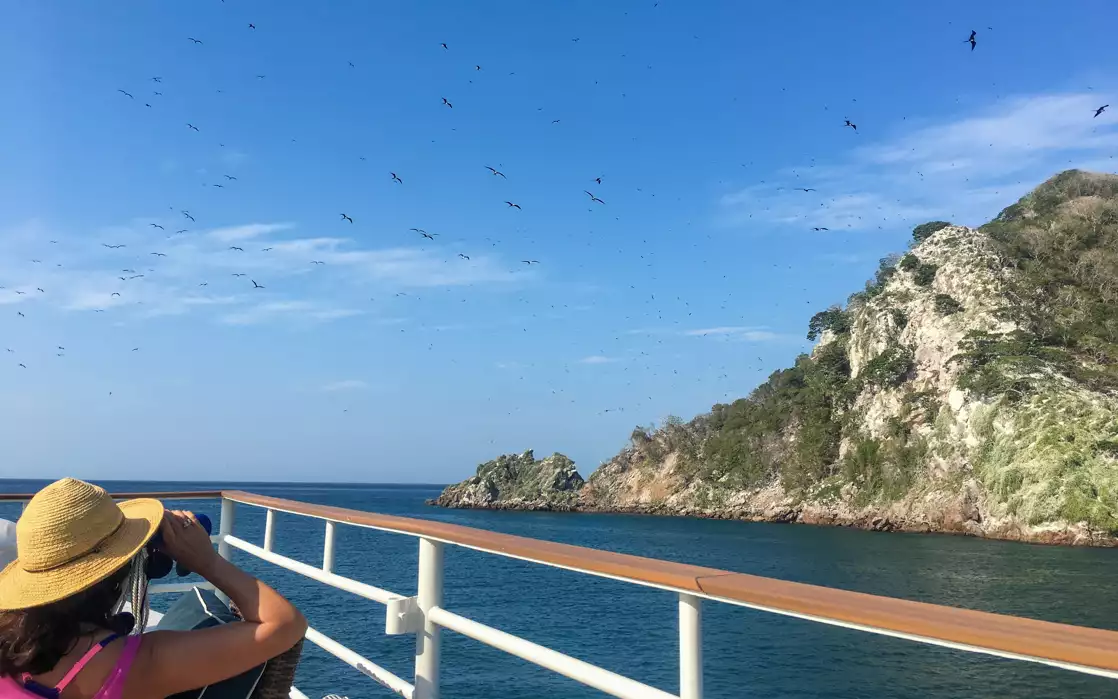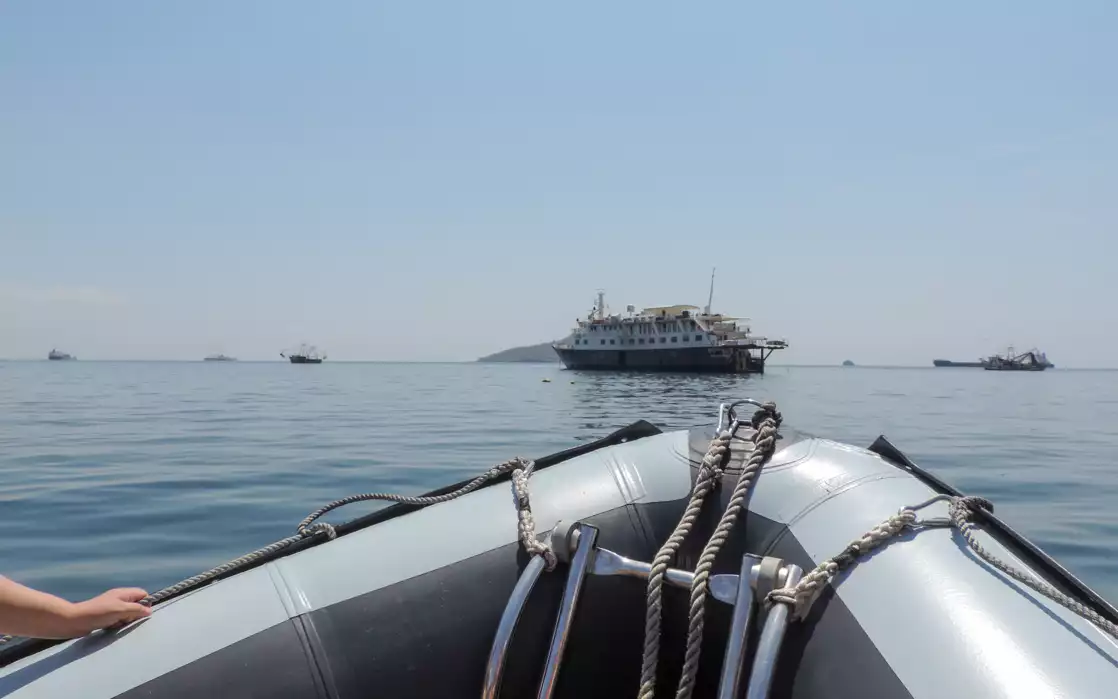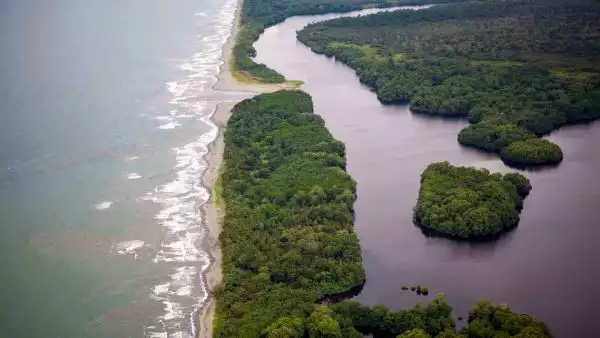Panama weather, temperature and climate is an important consideration when planning travel to Panama. Here our experts outline the broad strokes of Panama climate including temperature tables and weather tables designed for travelers.
ON THIS PAGE: Panama Climate for Travelers
Rainy vs. Dry Season
Climate Table
Microclimates
Find & Filter Trips by Month
Panama Trips for Any Season
No matter what season you seek to travel in Panama, AdventureSmith Explorations has an extensive, curated collection of Panama small ship cruises and jungle and beach trips to recommend. Learn more about our Panama trips, or go direct to our Trip Finder to search by location and your travel dates.

OUR EXPERTS WERE HERE
You have questions.
We have answers.
Rainy Season
Winter in Panama refers to the rainy season (late May to early December). The rainy season does not mean continuous rain. Usually mornings are sunny, with intermittent heavy rain in the afternoon. Continuous overcast and drizzle is not the norm except sometimes in the rainiest months of October and November. The rainiest areas are in the western mountains on the Caribbean. Rain is worth big money to Panama because it is what floats the ships through the Panama Canal.
Dry Season
Summer in Panama refers to the dry season (December-May). This means that in the cold months of wintertime in the north, when many people are seeking relief in warmer climates, Panama is having its summer with the highest temperatures of the year. The local school calendar is also reversed, with school “summer” vacations from mid-December through February. The dry season can be extreme in some areas on the south side of Panama in March and April.
Panama Climate
Temperature & Rainfall
| Month | Jan | Feb | Mar | Apr | May | Jun | Jul | Aug | Sep | Oct | Nov | Dec |
|---|---|---|---|---|---|---|---|---|---|---|---|---|
| Avg. High (F) | 92 | 93 | 95 | 95 | 94 | 93 | 93 | 93 | 91 | 91 | 91 | 91 |
| Avg. Low (F) | 65 | 65 | 65 | 67 | 70 | 70 | 70 | 70 | 70 | 70 | 68 | 67 |
| Avg. Water Temp (F) | 81.1 | 79.2 | 79.3 | 80.8 | 82.9 | 83.8 | 83.3 | 82.8 | 83.1 | 82.8 | 82.0 | 82.0 |
| Avg. Rain |
1.1 | 0.4 | 0.5 | 2.5 | 9.0 | 9.0 | 6.0 | 9.0 | 10.0 | 13.0 | 10.0 | 4.0 |
A Multitude of Microclimates
Panama has about 100 microclimates, so weather varies widely, by location. Mountain areas such as Boquete are cooler and windier, while Caribbean locales like Bocas del Toro are more rainy and humid. The driest part of Panama is the Azuero Peninsula on the south coast. The hottest part of Panama is around David (on the southwest border near Costa Rica).
The length of day is 12 hours year-round because Panama is near the equator. The sunrise is at approximately 6:20am and sunset is at 6:20pm year-round. Panama’s seasons are opposite of the United States.
Winter in Panama is known as summer up north and vice versa. Panama’s weather follows the same seasonal weather pattern as South Florida, except for the complete absence of hurricanes and often lower humidity. Annual rainfall in the city of Panama is about the same as Miami at eight feet per year.
Why No Hurricanes?
All hurricanes originating off the coast of Africa are moved by prevailing winds and steering currents westward and northward. A few brush the northern coast and islands of South America along 11 degrees latitude north of the Equator. But Panama is tucked away at 9 degrees latitude below the reach of hurricanes. The same holds true of all hurricanes spawning in the Caribbean and Gulf of Mexico.

PICTURE YOURSELF HERE
Make it happen
by staying in the loop.
